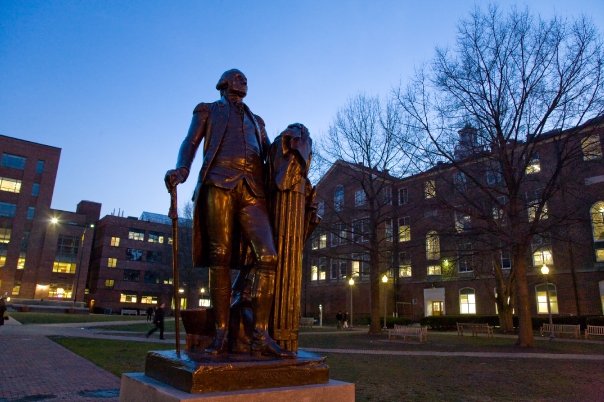
George Washington University Law School
New Law Course Examines International Economic Disputes
George Washington University Law School is offering a new course this spring that explores how lawyers can solve international economic disputes.
The new course, titled Global Economy and International Disputes, covers a variety of contexts such as bankruptcy and national court litigation, The GW Hatchet reports.
“The course Global Economy and International Disputes will examine international business transactions, such as the transnational sale of goods and services, foreign investment, and the transborder licensing of intellectual property, along with the modes and methods of international dispute resolution that allow international business to thrive,” according to a GW email newsletter.
GLOBAL KNOWLEDGE INCREASINGLY NECESSARY FOR LAWYERS
Kiran Gore, a professorial lecturer of law who is teaching the new course, says the course teaches students how to interpret and solve international economic disputes through law.
“The opportunities to engage with commentary and academic debates is really unique to this class because what we’re really trying to achieve in terms of a thesis for the class is to understand how things unfold in practice, which is very different from what law school classes typically cover, which is basic principles and ideas,” Gore tells The GW Hatchet.
Modern law, Gore says, is intrinsically tied to international issues. And lawyers today need to be equipped with global knowledge.
“You can’t be a business lawyer or a business litigation lawyer in Washington D.C. or a city like New York without having an international flavor to your practice,” Gore tells The GW Hatchet. “So there’s just no such thing, in my personal opinion, as a local lawyer anymore, and you need to be open to understanding how global trade and global business transactions unfold.”
Students in the course will analyze both primary materials—such as cases and lawsuits—and secondary materials—such as blog posts and legal commentary in law journals—to get a full understanding of real-world context.
“The goal really is for students to pick up things that are unique and different and that are not readily presented to them in the student setting and maybe things they will experience in real life once they go out and practice,” Gore tells The GW Hatchet.
Sources: The GW Hatchet, GW Law
